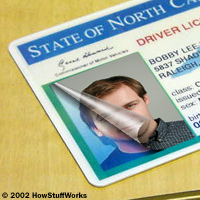The following should be called Vo. 11, No. V of a-clue.com, my free weekly e-mail newsletter. Enjoy.
Where does e-commerce stand, 13 years after the Web was spun? (Picture from SercomGroup.)
I date the beginning from 1994 because that’s when I first started covering the field, at the old Interactive Age Daily.
The promise was e-commerce could cut costs by eliminating middlemen, and expand choices by making one-off merchandise profitable.
In some ways this has been achieved. Middlemen have been eliminated. E-commerce has marched like a locust swarm through the travel market, the video market, the music market, the book market. But the savings have mainly been pocketed by new, larger merchants based far away (Amazon) or re-captured by the sellers who treated the Web as the middleman (Southwest Air).
The Long Tail does a better job than I have in detailing how choices are expanded through the Web. Sites like eBay are great for one-off goods, bringing the maximum number of buyers in, killing another traditional market (auction houses) in the process.
But in terms of technology we could be much, much further along than we are. Internet-based systems let you manage demand from the point of supply and it has been traditional merchants, like Wal-Mart, not online merchants, who have taken advantage. As a result rather than promoting diversity and local provisioning Internet technology has actually promoted the opposite, sameness and foreign provisioning. So far.
What are the two key factors slowing Internet commerce in 2007? It comes down to two words.
The AT&T telecom monopoly (splitting the nation with Verizon, partly shared with Comcast) has eliminated the competitive market for Internet bits which should, based on the technology available, now have us all happily running 100 mbps streams at one another, both up and down, over both wired and wireless systems.
This was a stupid, but deliberate, decision by the government. Central control of the resource means total control over the people — or so they think. This is a complete misunderstanding of the way in which the Internet works. Central control of the resource just means less of the resource.
The latest version of the 802.11 standard, 802.11n, moves data at over 100 mbps, over unlicensed wireless frequencies. Yet the bulk of the market is stuck with modem-like speeds, because the monopoly’s wireless unit has grabbed all frequencies available at auction, hoarded most of them, and managed the rest with a maximum of inefficiency, doling out bits with an eyedropper so it can get the maximum return from each one.
It’s even worse in the wireline world. There are technologies available that can run 100 mbps of data on copper, the same copper you have coming to your home now, but instead AT&T has played this game of "the promise of fiber" in order to get what it wanted, then abandoned the field. The whole purpose was to gain the same monopoly power over wired Internet service the phone companies have over wireless, to then dole out those bits with an eyedropper and control what they do, again with the promise of central control, but the reality of diminished service.
We’ve been dealing with the problems of online identity for over a decade now, and the problems only seem to be getting worse. (Picture from HowStuffWorks.)
The RealID Act, rammed through with minimal public debate, promised to solve the problem, but it’s a top-down approach that actually makes things worse.
While biometrics technology can be beaten, opponents of better identity tools should have to answer for the absolutely obnoxious ease with which identities are presently stolen, since they rely on simple strings of numbers that can be easily obtained online.
The whole battle has been done backwards. Governments and businesses claim to control your information, meaning you. So your natural inclination is to fight against what data is there, to seek to minimize what’s available.
We need to turn the incentives around. Make your personal information yours. Not just your transaction data, and your license or social security numbers, but all your personal data. Your fingerprints. Your irises. Your DNA. When this data is yours, you will be more than happy to release any of it, temporarily, for limited purposes and limited times, in order to gain the most protection from it. And anyone misusing it in any way has to answer to you.
The incentives on identity information need to be reversed. This can only be done by reversing the control of that critical data, from business and government to you, the real owners. At that point, when you give personal data to a business or a merchant, the risk on the loss or misuse of that data goes to them, not you.
This is a concept thousands of years old. It goes back all the way to Imperial China, where no paper from the Emperor was considered real or authentic unless he placed his personal "chop" or seal on it. The point here is, it was his, not the property of the person he was contacting, not the state’s, but his. We all deserve the rights of a Chinese Emperor.
And when your data belongs to you, so too does a business’ identity belong to it. Every business should be required to prove its identity to you before demanding you pay it. Failure to provide adequate proofs means the transaction did not happen. Change the incentives.
Monopoly and identity are important because they are the key impediments to e-commerce today. You can’t have better digital markets with two-lane digital highways. You can’t build trust unless both sides in a transaction have the means of endorsing trust in their control.
It is a shame that the answers to these problems lie in Washington, D.C. But the problems were created by policies developed in Washington D.C. during this decade. Those policies need to be reversed for e-commerce to proceed, or e-commerce will simply proceed elsewhere, as other nations develop their infrastructures.
And that’s already happening. Asian countries are doing much more than we are in mobile commerce, because they have competitive markets. Europe is passing us in other areas of e-commerce, both because of a more competitive bit market and better privacy laws.
Before this is all fixed, I know, America will be the economic underdog again. But we were before the Internet boom, too. Japan was cleaning our clock before American innovation and entrepreneurship were unleashed in the 1990s. And so it can be again.
Just not right away.














